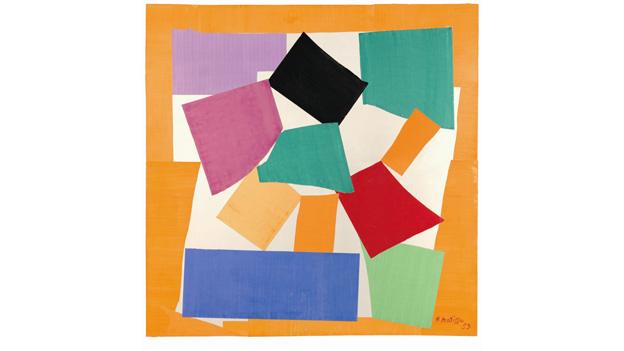National Gallery sued over 'stolen' Matisse portrait
- Published
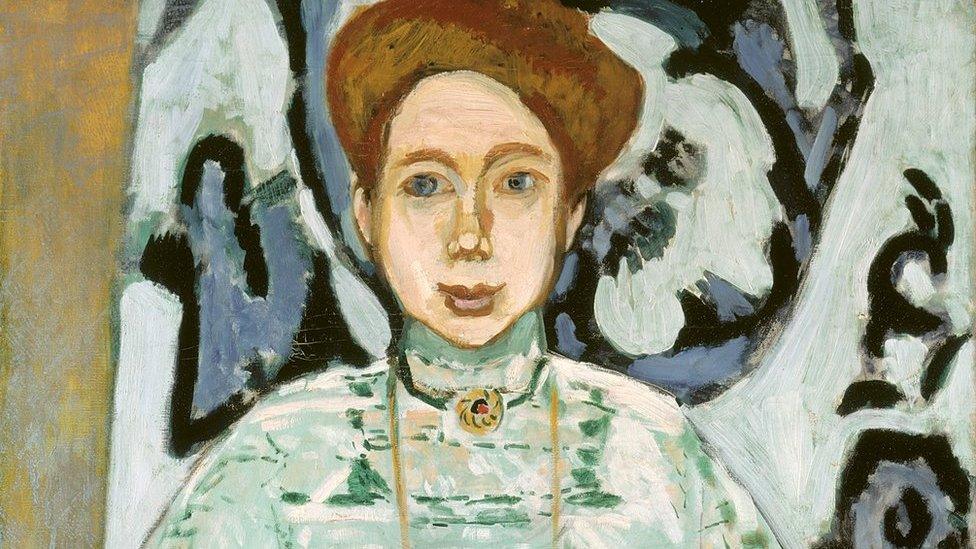
The 1908 portrait shows Greta Moll, a student of Matisse
The National Gallery in London is being sued by heirs of the subject of a 1908 Matisse portrait.
Three grandchildren of Margarete Moll, known as Greta, claim the gallery is unlawfully displaying the painting, and say it was stolen after World War Two.
They began proceedings in a federal court in New York on Wednesday, claiming the Portrait of Greta Moll is rightfully theirs.
The National Gallery said it will defend itself against the legal action.
'Family heirloom'
It added it had received the documents, and that it "would not, even if the theft were proved, be under any obligation to return the painting to the family". Its full statement is written below.
The grandchildren - British-born Oliver Williams and Margarete Green and Iris Filmer of Germany - have been trying to gain possession of the painting for five years.
They want $30m (£23m) in compensation if the work is not returned.
The heirs filed their case in New York because they say the National Gallery has commercial interests in the US and has profited from the work through its display and the sale of associated merchandise.
"This is a family heirloom of their grandmother, by Matisse, which belonged to her," their lawyer David Rowland told Reuters.
"It is not acceptable, moral or legal for museums to bury their heads in the sand, and keep stolen paintings in their collections."
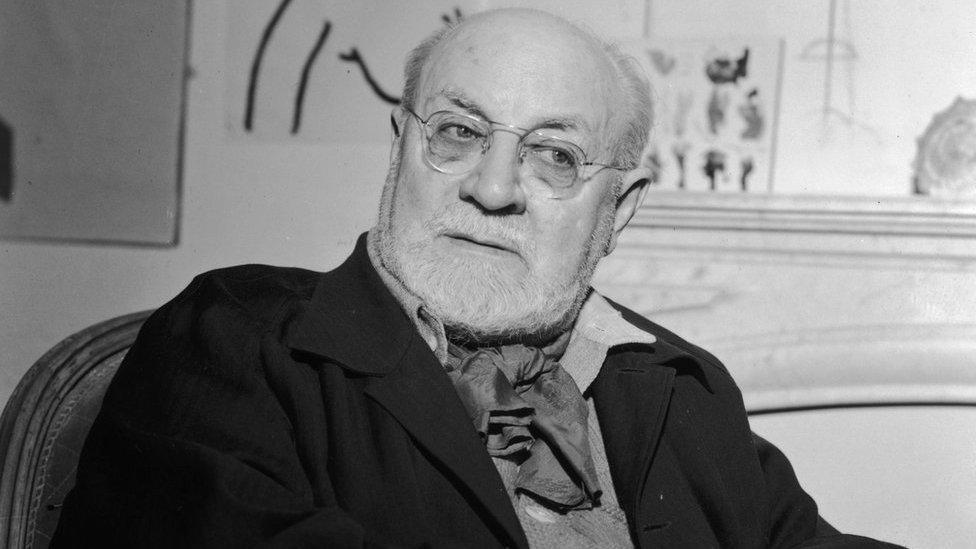
Henri Matisse lived from 1869 to 1954
Moll, a pupil of Matisse, is believed to have sat for 10 three-hour sessions for the portrait.
Her husband Oskar bought the painting from Matisse, the complaint said.
Moll lived in Germany during the war and gave the painting to her husband Oskar's art student, who lived in Switzerland, for safe-keeping from looters after the conflict ended, according to the complaint.
The student ran off with the painting and the work passed through the hands of US art galleries until it was bought in 1979 by the National Gallery in London, it is claimed.
The heirs say the gallery should have been more suspicious of the origins of the painting but its director Gabriele Finaldi has refused to return the oil painting because of "statutory constraints".

The National Gallery statement in full:
"Portrait of Greta Moll by Matisse was acquired by the National Gallery in 1979. It was purchased from a commercial gallery in London in good faith and the National Gallery has good title.
"The descendants of Greta Moll believe that the family were wrongfully deprived of the painting in 1947.
"The National Gallery understands that both Greta Moll and her husband were living in Germany during the war and were regarded by the Nazis as degenerate artists. Several years after the war ended, and following the death of her husband (in 1947), Greta Moll left Germany for Wales (1947/48), so she was not fleeing from Nazi persecution. We understand that the family believe that Portrait of Greta Moll was stolen by a family friend or acquaintance to whom she entrusted the painting in 1947.
"Whilst further information on the painting's history has recently come to light which indicates a gap in provenance between 1947 and 1949, there is no certainty that the painting was stolen and the alleged theft of the painting in 1947 has not been proven. Even were it to be proved, the National Gallery remains (by virtue of the purchase in 1979) the legal owner of the painting, which it holds for the Nation.
"When the National Gallery bought Portrait of Greta Moll in 1979 it made the types of enquiries which all UK museums and galleries regularly made at that time regarding the history of a work when purchasing a painting.
"The National Gallery would not, even if the theft were proved, be under any obligation to return the painting to the family - (just as any individual who had purchased the painting in good faith in 1979 would be under no obligation to return it). The National Gallery is in fact prohibited from making transfers of paintings in its collection, so could not in any event transfer the painting to the family.
"The National Gallery first became aware of the family's interest when it received a letter from lawyers acting for the family in 2011. Prior to that date, the National Gallery had had contact with a daughter of Greta Moll, but it had never been suggested to the National Gallery that the painting had been stolen from the family. No legal claim had been made for the painting through the courts until this week (w/c 5 September 2016).
"The National Gallery will be defending itself against this legal action.
"It is also worth noting that in the light of concern that some works of art now in public collections may have been looted or otherwise improperly acquired during the Nazi era (1933-1945), without restitution having been made, the National Gallery, like all the other national museums, has paid particular attention to the whereabouts of its paintings during those years.
"In March 1999, with the cooperation of the Gallery, The Art Newspaper published an initial list of paintings in the Gallery with incomplete provenance information for the period 1933-1945. Since then the Gallery's research has continued and an updated list is available on the National Gallery website."

Follow us on Twitter @BBCNewsEnts, external, on Instagram, external, or if you have a story suggestion email entertainment.news@bbc.co.uk, external.
- Published25 March 2015
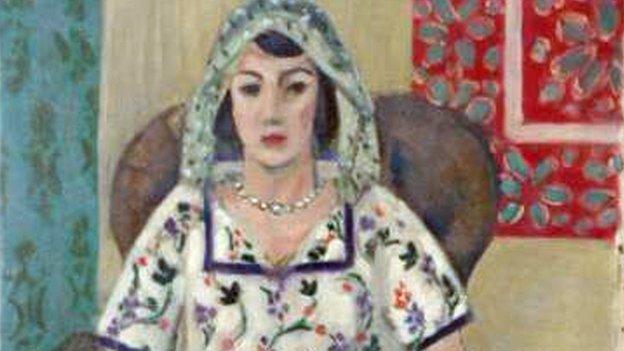
- Published15 September 2014
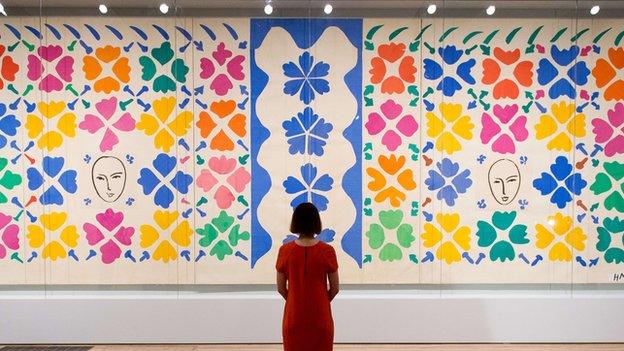
- Published8 July 2014
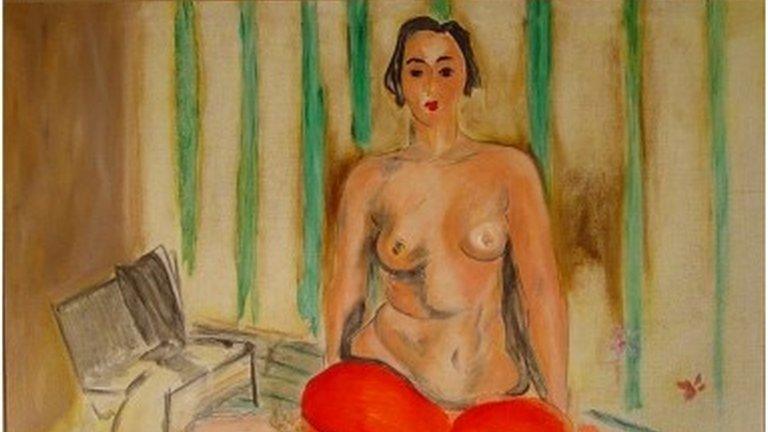
- Published14 April 2014
